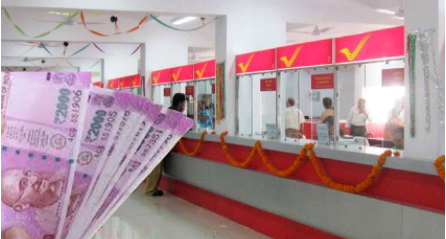Big returns can be earned even with small deposits. There are many schemes running in the market today, making it difficult to choose the right one. Government-backed schemes generally attract customers.
Big returns can be earned even with small deposits. There are many schemes running in the market today, making it difficult to choose the right one. Government-backed schemes generally attract customers. Savings schemes offered by India Post are also people’s choice. One such scheme launched by India Post is the Post Office Recurring Deposit Deposit Account. The interest rate in this plan is compounded over three months, with the key feature being the freedom to open an account in your child’s name, so that they can be guaranteed a secure financial future.
For a customer to open an account in the name of their child, they have to be listed as their legal guardian. The maturity period of this plan is 5 years.
What is the income on this plan:
Any parent who opens an RD account for their child can deposit Rs 70 per day, making it Rs 2,100 per month. On maturity i.e. at the end of 5 years, the parent’s account will have Rs 1,26,000. With this the interest rate is taken into account, which is compounded quarterly. An interest rate of 5.8% is being given to the RD account holder from April 2020. This makes the interest at the end of 5 years Rs 20,000. Thus, the amount in the RD account of the holder will be Rs. 1,46,000.
Other things to know before opening an RD account
- Eligibility: The scheme allows any Indian citizen to open a single or joint account for a maximum of 3 adults. A guardian can also open an account on behalf of a minor.
- A child above 10 years of age can also open his account.
- What is the limit: According to the India Post website the minimum amount for monthly deposit is only Rs 100, with no upper limit.
Account closure and extension
The account can be closed prematurely after 3 years of continuous deposit. However, in this case the rate of interest will be the same as that of the savings account. The period can be extended for a further 5 years.


